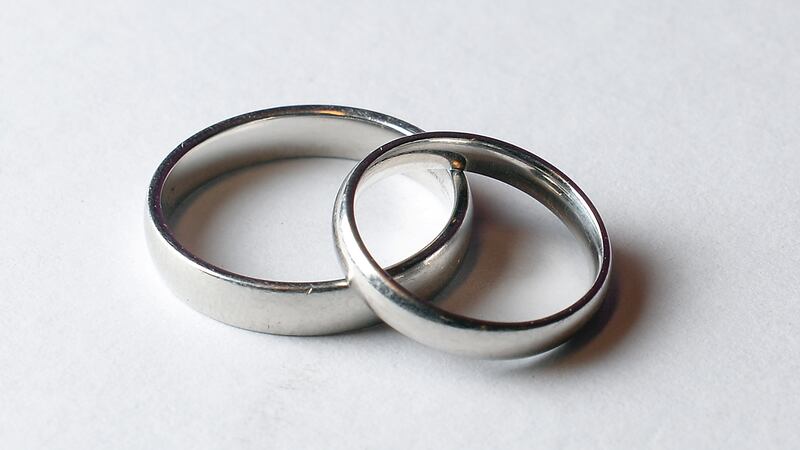Minister for Children Roderic O’Gorman has rejected suggestions that married couples’ rights will be limited under proposed changes to the Constitution.
He denied that, by broadening the definition of families in the upcoming referenda, it would remove benefits for married families.
Two referenda are to be held on March 8 to amend Ireland’s Constitution.
The first plebiscite is on whether the Irish constitution should be changed to extend the definition of family beyond only those based on marriage to include “durable” relationships.
The second is on whether to delete a reference to the role and duties of women in the home and replace it with a new article on the provision of care.
The Law Society of Ireland held a debate on the proposed changes to the Constitution on Thursday.
Six panellists took part in the discussion, with four in favour of voting to amend Article 41 to provide for a wider concept of the family, and to delete Article 41.2 and its reference to the role of women in the home.
Mr O’Gorman told the audience, who gathered at The Merrion Hotel, that the Supreme Court has made clear in recent cases that the meaning of a family, as it currently stands, is one based on marriage.
He said: “What they (court) did say is, if we want to change the definition of the family in our Constitution, that’s a job for the people.
“We have that opportunity in March.
“I refuse to accept this notion that by broadening recognition, and broadening protections for those families who aren’t married, we are taking anything away from married couples and families.
“I just don’t accept that.
“We’ve made a decision as the government not to take out the special recognition of marriage. It’s there.”
Catherine Day, former secretary general of the European Commission and chairwoman of the Citizens Assembly on Gender Equality said: “The members of the assembly wanted to see the world that they live in today, 2024, not 1937, which was a very different time.
“They want to see it reflected in the highest legal order of the land, which is the constitution.”

Independent senator Ronan Mullen said he would like to see a debate around the benefits of marriage, describing that it is a “social stabiliser”, adding that the proposed wording could changes the rights of married families.
He also claimed that the proposed wording “undermines” the role of “homemakers” through its reference to the role of carers.
He also claimed that the referenda was happening at time of “gender wars”.
“What is the state going to do? It’s going to ‘strive’, it’s going to do nothing for carers,” he added.
“So you have the insult to injury, the pretence that we’re engaged in some kind of inclusive improvement.
“In reality, it’s a cynical government agenda that involves getting rid of a reference to a mother, funnily enough at a time when we’re in the middle of the gender wars, getting rid of a reference that is actually very respectful of women, and doing nothing for the state’s obligation to carers inside or outside their home.
“It’s just paying lip service to family-based care.
“Nobody should respect the process that has led to this very, very uncertain and inadequate wording.”
However, Labour leader Ivana Bacik said: “What is what is recognised in Article 41 is an outdated and sexist stereotyping of women and of mothers.
“Women of having lives within the home, mothers as having duties in the home, with no reference to fathers who would play such a pivotal role in caring for children, no reference to care at all. ”
She added: “There has been no benefit derived from (Article 41.2) for women in the home, nor has it been interpreted in any sort of progressive way by the courts to confer any right to any sort of state recognition, in terms of monetary compensation for labour or duties in the home.”
Orla O’Connor, director of National Women’s Council, who is favour of changing the Constitution, said that care work in the home has been “undervalued and underpaid”.
“We will all give and receive care in our lives.
“It is particularly important for women because of the absence of state support for care, and it is just as strongly felt that that absence is rooted in the Article, because by saying it is a women’s duty, and it was a mother’s duty, it absolves the state on taking responsibility for care,” she said.
“So care work in the home and outside has been undervalued, underpaid, unrecognised, and has caused such a barrier for women’s participation in any aspect of society.”
Journalist and barrister Brenda Power said that removing the “women in the home” Article is “insulting” and “offensive”.
“The fact is, as the Chief Justice Susan Denham said, it has never limited women, never undermined women, never ascribed any role to them, instead it acknowledged their significant contribution to Irish life,” Ms Power added.
“To remove the acknowledgement of that reality seems to me to be insulting, offensive and frankly disingenuous.”
She was also critical of the word “strive”, claiming that it means that the state will “do its best” for carers.
“If you vote yes for this provision, if you vote yes for the carer provision, you are copper-fastening and validating the really inadequate care provisions that currently exist,” she added.








